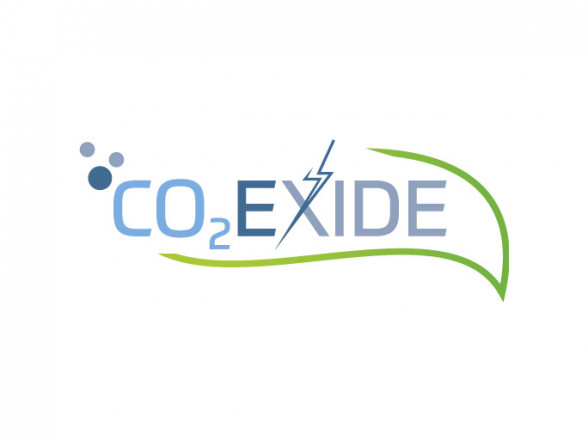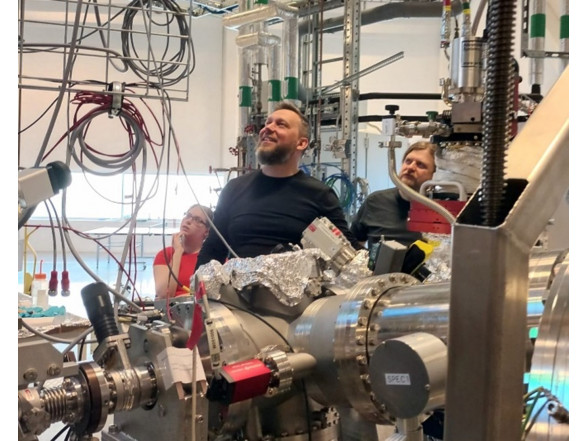The CO2EXIDE is a Horizon 2020 project. Within the scope of the project, video portraits of the partner organizations are created. The ISSP UL, its specific research findings and the achieved results are presented in the 5th film of the series. In the film, Institute’s researchers explain the creation of an alternative structure of the cathode for the electrocatalytic reduction of CO2 to ethylene and about the theoretical calculations from the first principles of the graphene sheet modified with copper atom clusters.
The goal of the CO2EXIDE project is the establishment of an electrochemical, energy efficient and near-to CO2-neutral process for the production of the bulk chemical ethylene from CO2, water and renewable energy. One of the central steps is the development of a new type of electrolyser that enables a simultaneous reaction on both anode and cathode, which is more efficient in terms of energy and resources.
The project brings together physicists, chemists, engineers and dissemination and exploitation experts from five universities/research institutions, three SMEs and two industries, innovatively joining their key technologies to develop and exploit an unprecedented process based on CO2, renewable energy and water to connect the chemical and energy sector.
The role of the ISSP UL in the project is to create an alternative structure of the cathode for electrocatalytic reduction of CO2 to ethylene, based on modified multi-layer graphene stacks obtained from recycled graphite. In addition, the ISSP UL performs theoretical calculations from the first principles of the graphene sheet modified with copper atom clusters, and constructs innovative electrochemical half-cell to monitor with FTIR spectroscopy the gases in CO2 reduction process. SPEEK polymer composites with zirconium oxide nanoparticles and ionic liquid derived from imidazole compounds are being developed to form a membrane that is compatible with the catalyst materials and stimulates the adsorption of the CO2 on the electrode.
Three ISSP UL’s laboratories are involved in implementation of the CO2EXIDE project - Laboratory of Materials for Energy Harvesting and Storage, Laboratory of Computer Modeling of Electronic Structure of Solids, and Laboratory of Chemical Technologies.



